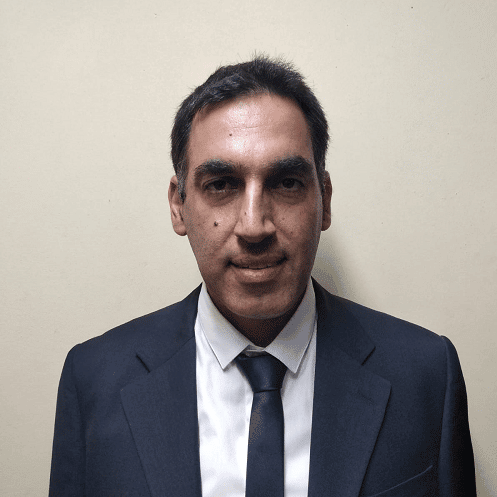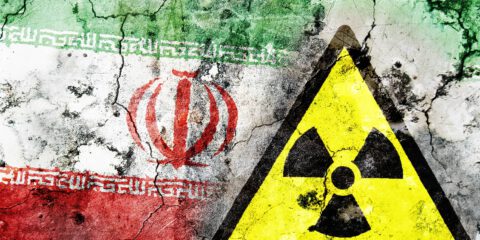“Qods Day” reflects Tehran’s determination to annihilate Israel, a pillar of Iranian foreign policy. It also is an important part of “exporting” the Islamic Revolution.
Qods Day (Jerusalem Day) was established by the founder of the Islamic Republic of Iran, Ayatollah Ruhollah Khomeini. It is one of the important tools through which Iran has sought to boost its strategy for regional hegemony and the destruction of Israel.
In a message to Muslims around the world in August 1979, Ayatollah Khomeini set the last Friday of Ramadan as “Qods Day,” which expresses the aspiration to destroy Israel. Khomeini called on Muslims and their governments to hold ceremonies in solidarity with Palestinian struggle against the Zionist entity.
The Iranian focus on the Palestinian issue was made possible following the theological reform that Khomeini brought about after the Islamic Revolution in Shiite attitudes toward Jerusalem. After its many years of neglect by Shiite religious scholars, Khomeini established the holy position of Jerusalem (after Najaf and Karbala), stating that it is imperative for all Muslims to act for the liberation of Jerusalem from the burden of Zionism.
Since then, Iran has used the Palestinian issue to subvert Arab regimes in the region, along with promoting military pressure on Israel through its sponsorship of Shiite and Sunni terrorist organizations that have been operating against Israel. Thus, in fact, the Palestinian issue in general, and the Qods Day in particular, has become an important tool for Iran with which to promote its legitimacy in the Arab and Muslim spheres in the Middle East. The Qods Day has become a tool of legitimization. Remember, Iran is different from other regimes in the region in two ways. It is Shiite in a largely Sunni area, and it is a fundamentalist Islamic regime, led by clerics, as opposed to Arab monarchies and republics.
However, Khomeini stated that Quds Day is not restricted to the Palestinian issue alone but is a day of uprising of the oppressed nations against the arrogant elements, led by the US and its regional allies. In doing so, Khomeini signaled the true essence of Quds Day as an instrument of amplification to expand Iran’s influence in other countries, especially in Moslem countries affiliated with the US.
Main Features of Qods Day in Iran
The Qods Day is a major anchor in the calendar of revolutionary Iran, alongside November 4, in which the Iranian regime commemorates the occupation of the Tehran’s American embassy in 1979. The Quds Day is marked by processions held in various cities in Iran, most notably Tehran, in which the major speech of this day is delivered. The slogans in the rallies reflect the basic values that the regime seeks to impart, most notably the absolute obedience to Khamenei, the desire to destroy Israel, the opposition to the U.S. and its affiliated regimes, most notably the al-Saud regime in Saudi Arabia and al-Khalifa in Bahrain. The processions are usually launched by the mosques after Friday prayers, in which the sermon leaders glorify the liberation of Jerusalem and emphasize the necessity to destroy Israel. The central motif of the sermons given by regime officials (led by Khamenei) on the occasion of the Qods Day in Iran’s cities, and especially in the central rally of Tehran, is the call for governments and peoples of the region to establish a Muslim bloc led by Iran against Israel. Participation in ceremonies on this day, which is a day off from work as every other Friday during the year, is seen by the regime as further evidence of internal legitimacy to the regime. Therefore, every year efforts are made by the regime to spend masses on the rallies (especially in capital Tehran), to which civil servants and even school students are led.
On the other hand, as has been expressed since the demonstrations in 2009 onwards, especially with the slogan of “No Gaza, no Lebanon – I sacrifice my life for Iran”, many circles in the Iranian public reject the ideal the regime seeks to instill in society. The main reason for this is the disgust of many circles for channeling the financial resources of Iran to the various organizations supported by the IRGC, at the expense of the public who groan under the burden of sanctions. Iranian intellectual, Professor Sadegh Zibakalam, who called on the regime in 2014 to recognize Israel because it is recognized by the United Nations, is one of the prominent voices against Iran’s policy of annihilating Israel. In addition, the refusal of students at several universities in Tehran and Isfahan in recent years to step on Israeli and American flags that have been set by the regime is another public expression of opposition to the regime’s policy towards Israel.
Faced with manifestations of opposition to its policy, the regime makes significant indoctrination efforts every year. Alongside the Qods Day sermons, ahead of this date the regime’s newspapers publish the speeches of senior IRGC commanders and articles written by prominent journalists in which they highlight the importance and centrality of the Palestinian issue and the necessity of “liberating Palestine”. Governmental institutions also publish literature highlighting the importance of the Palestinian issue and the necessity to destroy Israel. The most prominent publication on this issue is the file of Khamenei’s speeches on the Palestinian issue, which was incorporated into the book: “The Most Important Problem of the Islamic World: Selected Statements by Ayatollah Khamenei on Palestine.” The book highlights the importance of the Qods Day, and the duty of the Muslim governments and peoples to mobilize, each as they can, for the mission of “liberating Palestine” and “restoring it to Muslim hands.” Furthermore, various publishing houses operating on behalf of the regime publish extensive literature highlighting Muslims’ exclusive ownership of Palestine. This literature includes books such as “Palestine: History, Occupation Geography, Intifada” (2016), “Judaism and Zionism: An Analysis of the Ethnic, Historical, and Religious Components of A Disaster” (2010), “Camp David: A Treason of Palestine Values” (2015).
Qods Day 2020 in the Shadow of the Corona Crisis
Due to the spread of the Corona virus, which its death toll has officially reached over eight thousand victims in Iran (the actual amount is much higher), no Qods Day rallies were held across the country this year, and the Khamenei speech was broadcast on television .Speech content was also transmitted in Arabic and other eleven languages (including Azerbaijani, Chinese, Bosnian, Pashto and Kurdish) through the office of Khamenei, as well as its Twitter accounts in these languages.
The Iranian view that Jerusalem must be only under Muslim sovereignty was well reflected in the words of Khamenei that Zionism is an obscene renewal, which is foreign to the Jewish religion. Accordingly, Khamenei stated that Palestine was the Palestinians inheritance, which were expelled from it when Israel was founded in 1948, even though their ancestors had lived there for generations. Khamenei also reiterated the claim that the “right of return” of the Palestinians, the rightful owners of this land, should be exercised, thereby ensuring the destruction of the State of Israel. He declared that Judaism is a religion and not a nation, and that is why Israel is an artificial and disqualified state, in complete denial of the history of the Jewish people in the Land of Israel.
In accordance with the extensive use of the Palestinian issue by Iran to expand its influence in Muslim countries, Shiite and pro-Iranian circles marked the Qods Day in countries where Iran is active, including Afghanistan, Syria, Iraq, Madagascar, Benin and Nigeria. Most of all, these processions waged in Iraq by pro-Iranian Shiite militias, such as Al-Nujaba and Badr Organization, and in Yemen by the Houthi Ansarallah militia, reflected a power demonstration of Iran which projected its control over these countries. Throughout the Middle East, Iran has failed to export the Qods Day to Sunni communities, and in fact, apart from resistance organizations (led by Islamic Jihad and Hamas in the Gaza Strip), these communities do not mark the Qods Day. Opposition to mark the Qods Day is also evident among Shiite circles who oppose Iran. Thus, Lebanese cleric Muhammad Ali Husseini stated in an interview to the Saudi Okaz newspaper that the Qods Day does not reflect an Iranian ambition to help the Palestinians but to promote the Iranian expansion project in the region. The same message was also reflected by the Shiite Lebanese website Janoubia, which opposes Hezbollah.
Due to the corona crisis, processions were canceled in some countries (such as in Iran and Lebanon) or held in limited form (in the Gaza Strip), and by car convoy (in Yemen and Syria). Following this, Iran organized an online conference attended by leaders from the Iran-led Resistance axis. The speaker in the online conference were, among others, Nasrallah, leader of the Shiite opposition in Bahrain – Ayatollah Issa Qassem, commander of the Shiite Iraqi militia Asa’ab Ahl al-Haq – Qais al-Khazali, leader of the Yemeni Ansaralla militia, Abdul Malik Al-Houthi, Islamic Jihad leader Ziad Nakhala and Hamas’ political bureau chief Ismail Haniya. The most prominent message in the speeches of the conference was the condemnation of the Sunni regimes that take part in the normalization process with Israel, regards forthe Iranian support for the axis of resistance and for its adherence to the Palestinian issue, and highlighting the armed struggle as the only way to liberate Palestine.
In his address this year, Khamenei mentioned the diplomatic solution that Iran is promoting to destroy Israel, which was recently enshrined in a law passed by the Iranian parliament.This plan calls for a referendum among residents who lived in the Land of Israel/Palestine area until 1948, and their descendants who now live in the Diaspora, which will determine their preferred political system.The plan guarantees a Muslim majority in advance and thus determines the destruction of Israel in advance. According to Khamenei, the plan is supposed to prove that Iran is not promoting anti-Semitic policy but anti-Zionist. However, many indications show that Iran is promoting an explicit anti-Semitic policy.In this context, Khamenei, the serial Holocaust denier, plastered in his speech to Israel the term “virus” and ” cancerous tumor “, and on the eve of the Qods Day, his office issued a poster entitled “The Final Solution” (historically loaded term). In addition, Iranian television channels are constantly publish local anti-Semitic contents, and the Iranian Ministry of Health even held a cartoon contest in April entitled “We Defeat the Corona,” with some of the cartoons featured in it being anti-Semitic.
Until his call for this diplomatic initiative is answered, Khamenei called for continuing the armed struggle against Israel, calling it an Islamic religious obligation, stating that “victory in such a struggle has been guaranteed.” The statement of Khamenei that Iran will continue to support the resistance organizations despite the economic crisis it is suffering from following the sanctions and the Corona crisis also reflects the regime’s priorities. In his speech this year, Khamenei called on the Iran-backed resistance organizations to step up their cooperation. He explained that such cooperation could advance the Iranian strategy of arming the West Bank and expressed satisfaction that the Gaza Strip had been already equipped with Iranian arms. Again, we see that the desire to destroy Israel is a fundamental element of Iranian foreign policy.
JISS Policy Papers are published through the generosity of the Greg Rosshandler Family.
Photo: Freepik/Kremlin.ru









 - בניית אתרים
- בניית אתרים